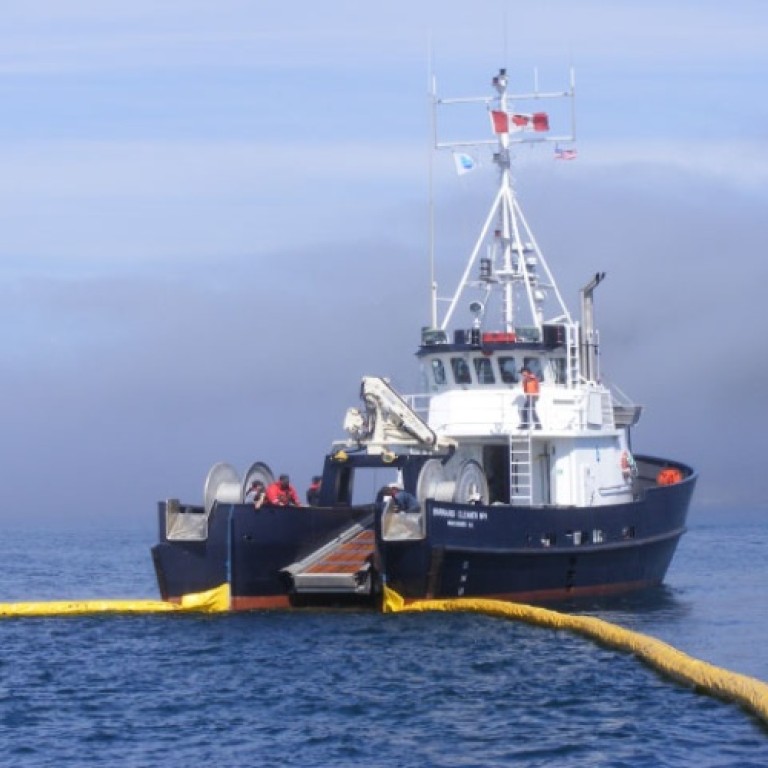
BC oil spill response group to make major upgrade
Expansion depends on Trans Mountain pipeline expansion's final approval
The company responsible for containing and cleaning up oil and fuel spills along BC’s shipping lanes plans to invest C$200 million (US$155.7 million) to enhance its existing spill response capability, in anticipation of the Trans Mountain pipeline expansion.
The investment is contingent on the C$5.4 billion (US$4.2 billion) Trans Mountain pipeline expansion project being approved by the federal government in December.
The Western Canada Marine Response Corporation (WCMRC) is responsible for containing and cleaning up marine oil and fuel spills and is funded by shipping and energy companies, such as Kinder Morgan Inc.
The company currently operates 17 vessels stationed throughout Burrard Inlet and has three bases – in Burnaby, Duncan and Prince Rupert.
The expansion will add five new bases, 26 new additional vessels and 115 new employees.
Should Kinder Morgan get final approval by federal cabinet in December, the WCMRC will move forward with its enhancement plans.
The investment is one of the requirements of the National Energy Board (NEB), which approved the Trans Mountain pipeline expansion in May, with 157 conditions. The BC government also required, as one of its five conditions for approval, that any new pipeline project develop a world-class marine spill response system.
Kinder Morgan will pay the lion’s share of the C$200 million investment, although the entire shipping industry operating along the BC coast will benefit, said Michael Lowry, communications manager for the WCMRC.
“All of these enhancements will be available for any type of spill from any vessel all along the southern shipping lane,” Lowry said.
The last significant spill that the WCMRC had to deal with was in English Bay in 2015. It was not an oil spill from a tanker, but a bunker fuel discharge from a cargo ship.
The relatively small spill took 16 days to clean up, and the Coast Guard’s response to the incident was criticised for being slow off the mark. The City of Vancouver was not even notified of the spill for 13 hours, and there was a three-hour delay in the WCMRC being called into action.
In the wake of that spill, BC politicians slammed the federal government for having closed the Kitsilano Coast Guard Station, and the City of Vancouver voiced concerns that the region is not prepared for a major marine oil spill.
The Liberal government has since reopened the Kitsilano Coast Guard station and as part of the NEB’s approval of the Trans Mountain expansion, enhanced oil spill capabilities were required.
The biggest oil spill the WCMRC ever cleaned up was 100 tonnes of synthetic bitumen in 2007, after a Trans Mountain pipeline ruptured.
After expansion, the WCMRC would have the capacity to clean up to 20,000 tonnes of oil, Lowry said.
“That 20,000 tonnes is off the water in 10 days,” he said, “That’s what we have to be able to do. If there’s a bigger spill than that, we’d just have to take longer to clean up.”

